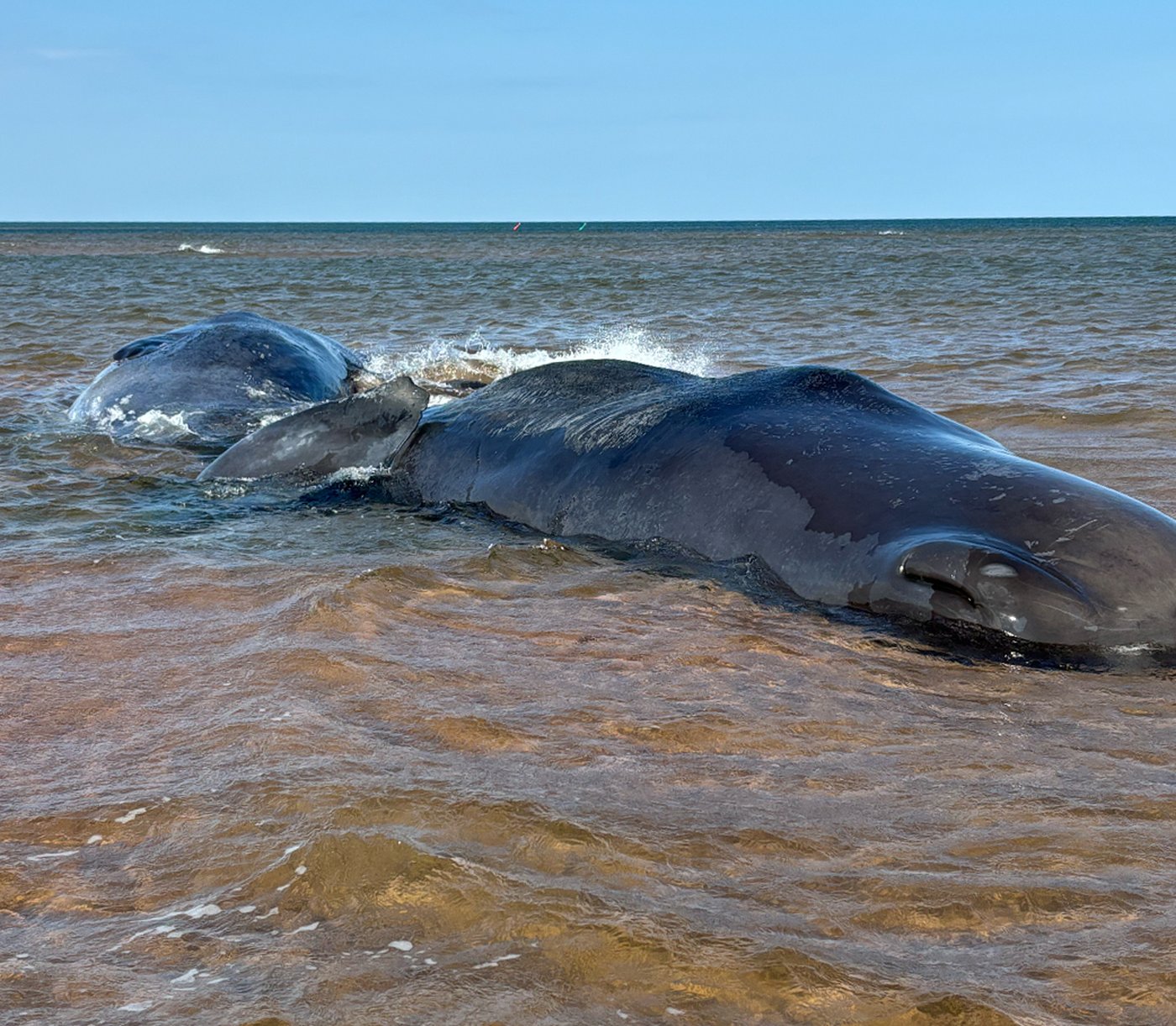Elevate your local knowledge
Sign up for the iNFOnews newsletter today!
Sign up for the iNFOnews newsletter today!
Selecting your primary region ensures you get the stories that matter to you first.

All three sperm whales stranded off the northern coast of Prince Edward Island have died, a marine rescue organization says.
Tonya Wimmer, executive director of the Marine Animal Response Society, has said three sperm whales became beached on Saturday night near Hardy’s Channel at East Bideford, P.E.I.
She said one died not long after it became stranded and a second died shortly after.
On Tuesday, the organization said factors including the size and weight of the surviving whale posed challenges and safety risks that could not be overcome.
“As such, collectively, the difficult decision was made to let nature take its course and let the animal pass naturally,” it said on social media.
Wimmer said earlier that it’s unlikely whales like these ones can survive after landing on shore.
“With whales — a thing of any size, when they hit a beach, they don’t have arms …. They’re beautifully designed to be in the ocean, and that’s where they’ve evolved, and they are fantastically perfect for that environment. But even though they’re a mammal, put them on land — that’s really not their element.”
She said her team was notified about the whales on Saturday. By the next morning, one of the three had already died, followed by another.
Veterinarians and Wimmer’s colleagues were monitoring the third whale.
The team measured the size of the whales, with the smallest one being 10 metres and the other two about 11 metres in length, she said.
It is likely that the stranded whales were a “bachelor” group, juvenile subadults without a pod, she said.
A number of options were discussed to help the animals, Wimmer said.
“Being able to refloat them, or if the animal could be euthanized like we would do with any animal that’s suffering. It’s just very complex for these large animals. Their bodies are way bigger than ours, way bigger than a pet we may have. There’s a lot of factors at play.”
Fisheries and Oceans Canada said on Monday the department had been using drones to take pictures of the whales because the location is difficult to access by foot or boat.
In Canada, sperm whales are found in deep waters of the continental shelf or in the Gulf of St. Lawrence, at depths of 500 to 1,000 metres, Wimmer said. So how and why the animals ended up off the coast of northern Prince Edward Island is a mystery, and something to be studied, she said.
The Marine Animal Response Society said in its social media post that it would work to see if necropsies can be done on the whales to find out what may have caused their deaths.
This report by The Canadian Press was first published Sept. 30, 2025.
This site is protected by reCAPTCHA and the Google Privacy Policy and Terms of Service apply.
Want to share your thoughts, add context, or connect with others in your community?
You must be logged in to post a comment.